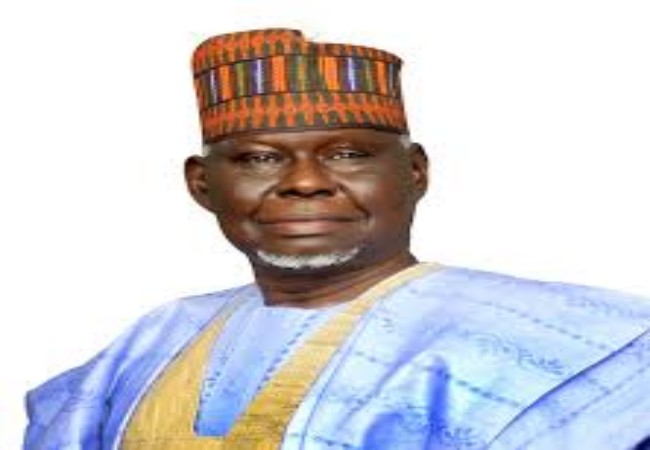Brigadier General Alwali Kazir, a retired Nigerian Army general, has identified leadership deficiency as the critical factor hindering Nigeria’s progress and its ability to effectively address its security challenges. In an exclusive interview with Arewa PUNCH, Kazir argued that Nigeria possesses all the necessary ingredients for greatness – a vast and resourceful nation, a vibrant and capable populace – except for the crucial element of effective leadership. He believes that this leadership vacuum is not accidental but rather a deliberate impediment orchestrated by external forces seeking to maintain their exploitative grip on Africa. These forces, he contends, view Nigeria’s potential rise as a threat to their continued neocolonial interests, fearing that a strong and prosperous Nigeria could inspire other African nations to follow suit and disrupt the existing power dynamics.
Kazir’s assessment underscores the pervasive sentiment among many Nigerians who see leadership failure as the root cause of the country’s myriad problems. Nigeria, despite its abundant human and natural resources, has long grappled with issues such as insecurity, corruption, poverty, and ethnic tensions. These challenges, according to Kazir and others who share his perspective, stem from a lack of visionary and competent leadership capable of harnessing the country’s potential and steering it towards sustainable development and stability. He laments that the very essence of leadership, the ability to inspire, unite, and effectively manage resources, seems to be missing in Nigeria’s political landscape.
The retired general’s assertion that external forces are deliberately undermining Nigeria’s leadership potential adds another layer of complexity to the issue. He points to Nigeria’s historical role in peacekeeping missions and liberation struggles across Africa as evidence of the country’s capacity for regional leadership. This active engagement in continental affairs, he argues, has made Nigeria a target for those who benefit from a fragmented and subservient Africa. A strong and independent Nigeria, he suggests, would pose a direct challenge to their neocolonial ambitions, hence the alleged efforts to destabilize the country and prevent the emergence of effective leadership.
Kazir’s concerns about external interference resonate with a broader historical narrative of external forces meddling in African affairs. From the colonial era to the Cold War and beyond, external actors have often played a significant role in shaping the political and economic trajectories of African nations, often to the detriment of the continent’s development. Whether through direct intervention, economic manipulation, or support for favored political factions, external influence has often exacerbated existing internal divisions and hindered the emergence of stable and accountable governance. This historical context lends credence to Kazir’s claim that external forces may be actively working to undermine Nigeria’s leadership potential.
The retired general’s call for divine intervention reflects a sense of desperation and urgency. Recognizing the enormity of the leadership challenge facing Nigeria, he appeals to a higher power for guidance and assistance. This plea for divine intervention underscores the deep concern felt by many Nigerians who see the lack of effective leadership as an existential threat to the nation’s future. It highlights the urgent need for a fundamental shift in the country’s political landscape, a shift that can only be achieved through a combination of internal reforms and a concerted effort to resist external interference.
In conclusion, Brigadier General Alwali Kazir’s diagnosis of Nigeria’s predicament centers on the critical absence of effective leadership. He argues that this leadership vacuum is not merely a coincidence but a deliberate obstacle orchestrated by external forces seeking to maintain their neocolonial grip on Africa. His concerns echo a wider sentiment within Nigeria and across the continent, highlighting the urgent need for strong, visionary, and accountable leadership to guide the nation towards stability, prosperity, and true independence. His call for divine intervention underscores the gravity of the situation and the hope that a solution can be found before it’s too late.














